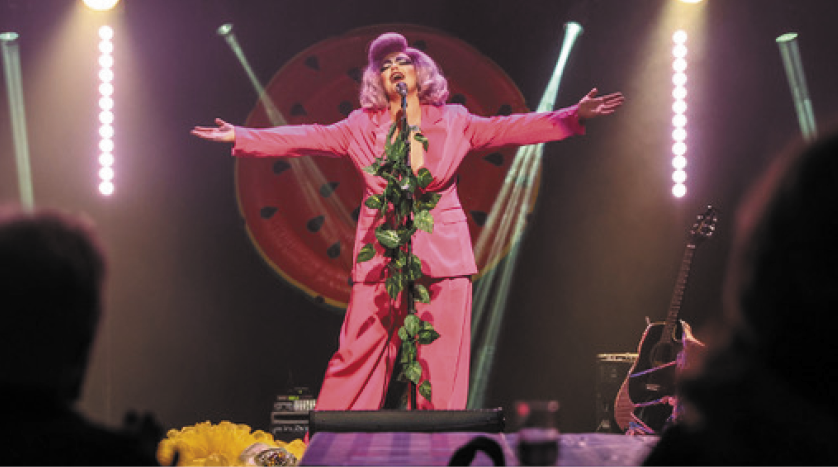SPORTS, ARTS AND CULTURE
The National Arts Festival (NAF) 2024 marks 50 years of the NAF providing diversified art content and delighting audiences in South Africa.
It will be held from 20 to 30 June in Makhanda in the Eastern Cape and is supported by the Eastern Cape Provincial Government, Department of Sport, Arts and Culture and long-time private sponsor, Standard Bank.
For years, the NAF has been creating extraordinary works that continue to reflect the shifts in the artistic landscape not only in South Africa but around the world. It has been providing a platform for artistic experim

entation, protest, collaboration, celebration and expression.
The NAF Chief Executive Officer, Monica Newton, said this milestone means that art is resilient.
She said despite the challenges that the festival has endured over the years including boycotts to bans, apathy to excitement and the impact of the COVID-19 pandemic, it has remained a space where artists can experiment, gather, roll out the new and revive the old.
“People are always changed by their experience at the NAF. We are also pleased that the programme has evolved and been shaped by the times both in terms of diversity of content and drawing ever more diverse audiences,” said Newton.
The eleven-day event is a diverse performing and visual arts festival. Work on the programme is predominantly South African but also features international and Pan-African works.
The Festival will also feature work produced by the winners of the 2024 Standard Bank Young Artists awards.
Newton said this year, the festival is packed with a wide range of productions across many genres and themes, from the curated works that speak to the creative pulse of our times, to the enjoyable comedy, music and magic of the fringe. There will be shows for children too so it’s a great school holiday and cultural adventure.
30 years of freedom and democracy
Newton said the NAF proudly celebrates 50 years of freedom of expression, and the anniversary is even more timely that it falls on the 30th anniversary of South Africa’s democracy.
“The Festival has since its early days been a place where resistance happened, where ideas that were then thought of as subversive or hidden were openly shared,” she said.
Going back to 1977, Newton added that the festival had multi-racial audiences when the then-government deregulated theatres (but not cinemas) and it was a place where black artists could safely show new works and share their stages with multi-racial cast and crew.
“It was also a space where the arts and culture of the country were co-created. For us, this combination of 50 years of the festival and 30 years of democracy is a time for reflection – both on where we have come from and where we are going,” she explained. ¥

 Facebook
Facebook Twitter
Twitter WhatsApp
WhatsApp